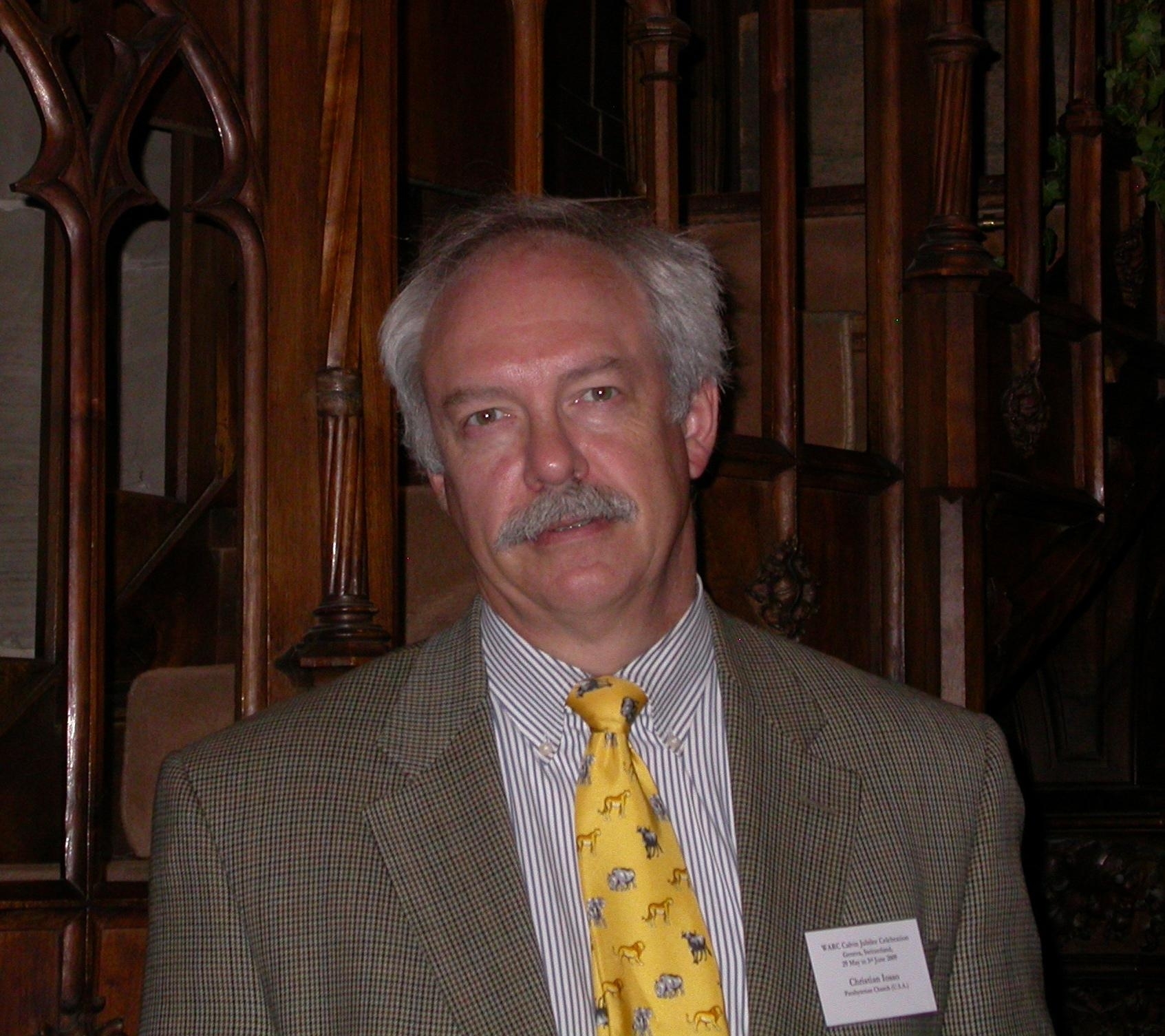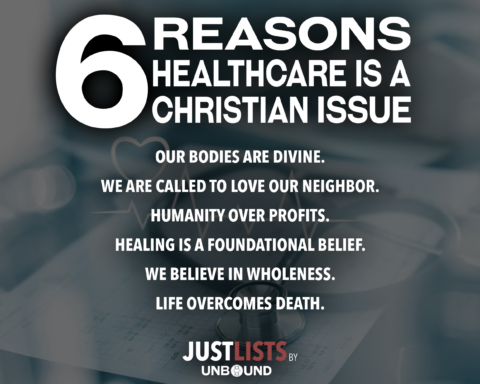(Defending the Common Good, Part 1)
Resuming our Bi-monthly Schedule with a New Managing Editor

People of any faith strive to be “in the world but not of it.” Our values must stand in opposition to “the swamp” of greed, vanity, and hunger for power.
For Christians, our faith has a moral vision based in the teaching and life pattern of the Prophet from Nazareth. Writing in mid-2017, we see the majority of US citizens getting tired of ego-driven drama, distraction, and constant deception in matters of policy. We witness this deception often scapegoating those with the least power, social standing, or wealth. Charges of “identity politics” are exchanged as polarization is incited, asserting that politics is a zero-sum game, rather than a “virtuous circle” of shared benefit.
The “Spirit of truth” calls us to cut through false claims and false divisions to focus on matters that affect the whole community—the common good.
This opening editorial for this issue of Unbound is to set the theme for the articles that resume our schedule after a hiatus of six months. It is paired with two opening pieces by our new managing editor, Henry Koenig Stone. He will be with us for at least two years—part of that hiatus was to assure ourselves of that timeframe, the same initial term contract accepted by our two previous managing editors, Patrick Heery and Ginna Bairby. We salute them both, and will note the awards won by Unbound from the Associated Church Press in a separate section. Each issue usually has editorials from both the Senior and the Managing Editors, representing different generational takes on the matter under discussion, different ways of introducing and appreciating the articles of our contributors. I celebrate Henry’s genuinely new ways of addressing perennial concerns.
Past readers and contributors will know that we do not only comment on current struggles in church and society and propose alternatives; we propose different ways of looking at our social struggles based on Christian faith. And we try to be self-critical, as well as critical of others, recognizing that none of us has truth in its entirety.
___________________________________________
Now is thus a time requiring a massive public clarification
of what Jesus’ actual teachings are.
___________________________________________
That said, today we cannot avoid seeing a major “post-truth” trend, and it means responding not only to the specific swamps, but re-building eroded foundations. Henry’s work addresses some of this, and we will also give serious attention to ethicists who give us key strategic tools, like Donald W. Shriver, Jr.’s work on “honest patriotism.”
Polls tell us that 81% of self-described “Evangelical” Christians voted for Donald Trump, whereas at least that percentage of “progressive” Christians see this as a fundamental corruption of their faith.
Now is thus a time requiring a massive public clarification of what Jesus’ actual teachings are. This is an important task, no matter whose political structure is in place, and this journal will always resist collapsing the realms of faith and politics into each other, and into culture as well, while recognizing that these realms intersect for all of us.
But what are the stakes of this endeavor: do we seek to make the United States a Christian nation—again? No, and also yes. Many of our Evangelical sisters and brothers were not simply mixing their whiteness and nationalism with their faith; they wanted what they saw as Christian values, as in an anti-abortion stance. We do not believe any official faith position should be legislated—anywhere in the world—but we also believe that the values of Jesus can inform a moral society, and we’d love to see a lot more voluntary Christian faith as well. A Christian nation in this sense would reflect Christian values, and not some faith-claiming authoritarianism.

So, here are 10 urgent struggles where we believe Christians are compelled to seek the common good, which are linked to more in depth treatments in reports by the Presbyterian Church (U.S.A.). Each report addresses a “swamp” of special interests lurking in the background, bound by conflict-of-interest and other restraints, a subject for an article in itself. But we hope to publish more in-depth articles on the 10 topics and more.
__________________________________________
Although today’s political polarization is hard to avoid, we are guided by policy positions that have been developed over decades, long before the current administration took power.
___________________________________________
Just to be clear: most of these views are shared by other “mainline” Protestant churches, the historic African American churches, the Orthodox churches, and the Roman Catholic church. I end the 10 with the Social Creed, an ecumenical invention adopted by the National Council of Churches of Christ in 2008. It provides a concise consensus statement of our stands on most basic current issues, and is also a unified vision based in St. Paul’s “faith, hope, and love.” Ecumenical disclosure: our new managing editor comes to us from the UCC (the United Church of Christ) and we plan for more ecumenical engagement.
Although today’s political polarization is hard to avoid, we are guided by policy positions that have been developed over decades, long before the current administration took power. Rooted in the Bible, these policies focus on issues of social justice for all, and are in line with similar policies affirmed by many other Christian groups.
Here’s a brief review of 10 policy statements released by PCUSA which speak to current political debates:
1. Healthcare Insurance: Resolution on Advocacy on Behalf of the Uninsured (2002)
In principle, everyone has a right to healthcare in a society with the capacity to provide it. While the Presbyterian Church General Assembly has actually called for a “Single Payer” on the model adopted by most developed countries, I cite a policy that advocates for health insurance and forewarns against efforts to end or reduce social protections—a relevant policy when “Obamacare,” Medicare, Medicaid, and even Social Security are under potential attack.
2. Immigration and Sanctuary (including lessons from the 1980’s): Transformation of Churches and Society Through Encounter with New Neighbors (1999)
The reasons people come to the United States vary, from a “well founded fear of persecution” (which merits granting asylum) to hopes for a better life—perhaps driven by the forces of globalization. The concept of “sanctuary”—as Donna Schaper’s article will show—is an intrinsically Christian component to the overall immigration debate, which is always about the moral boundaries of our society, as well as our national identity.
3. Taxation: Tax Justice: A Christian Response to a New Gilded Age (2014)
The Presbyterian Church does more in depth policies than most, but in this case was assisted by United Church of Christ and Episcopal friends—stalwartly upright even in a case or two where they claim to be “lapsed.” The core position: those who benefit most should bear the largest burdens of a shared social order, which in turn must include both common welfare and common defense.
4. Energy & Regulation: The Power to Change: U.S. Energy Policy and Global Warming (2008)
As members of God’s “earth community,” we must take the green path. It also has many benefits, though the transition from fossil fuel dependence will be hard—and is resisted by many powerful corporations and countries.
5. Public Education: Loving Our Neighbors: Equity and Quality in U.S. Public Education (K-12)(2010)
What does the data actually say about school choice, charter schools, and the basic inequities of funding public education on local property taxes? Beyond that, do the various privatization efforts not threaten to increase racial and economic segregation, as well as break the unions that have allowed our teachers decent standards of living? Note that “quality” is part of the picture: but why can’t we improve the quality of all schools? These are all critical questions for Christians in search of the common good.
6. Private Prisons & Mass Incarceration: Resolution Calling for the Abolition of For-Profit Private Prisons (2003)
The data suggests that for-profit prisons are not cheaper overall, they push for higher incarceration rates of nonviolent offenders and undocumented immigrants, and such prisons are generally more violent and less rehabilitative—not in line with Jesus’ sympathy for those in prison. Further, the economic costs of mass incarceration are particularly borne by communities of color. This issue will have an article that looks particularly at the war on drugs as a generator of criminalization. How could a Christian nation have the highest rate of incarceration in the world?
7. Women’s Equality: God’s Work in Women’s Hands: Pay Equity and Just Compensation (2008)
The Women’s March right after the recent inauguration was an insistence on respect, as well as a recognition that the effectively second-class status of women needs to be changed in many policy areas. This report argues for pay equity for women (and others discriminated against) because everyone has a vocation to serve God in and beyond their family lives.
8. Trade & Globalization: Just Globalization: Justice, Ownership, and Accountability (2006)
Extreme wealth inequality exists within nations and among nations. This is not a blanket condemnation nor a blanket endorsement of trade, but a matter of looking at who benefits most from the terms of trade and capital flows. The common good of one country cannot ultimately be separated from that of others, but neither should one be controlled by the financial power of others.
9. Bombing & Military Security: Drones, War, and Surveillance (2014)
The Obama administration took some measures to reduce the degree of militarization of US foreign policy and to dial back the unending, “zombie” wars it inherited. But its solutions to war and terrorism—narrow targeting and higher tech—created larger battlefields and eliminated due process, further weakening collective or “human security” in favor of the “national security state” approach. The common good framework at the very least argues for more State Department and human rights workers, for getting to know neighbors and for making friends of strangers.

10. Concise Summary: Connecting to the Creed (2008). We are mired in many ideological swamps beyond the nine just named. The Social Creed combines the particular and the general, all on one (small margin!) page. One of its affirmations speaks particularly to this issue’s theme. It calls for “tax and budget polices that reduce disparities between rich and poor, strengthen democracy, and provide greater opportunity for everyone within the common good.”
Please read Henry Stone’s self-introduction and opening editorial. They complement this understanding of Defending the Common Good, reveal his personal calling, and show what he adds to the mission of this journal, in serving the larger church’s witness.
*****
AUTHOR BIO: Senior Editor Chris Iosso has been ordained (Elizabeth Presbytery in NJ), inducted into General Assembly Mission Council service in NYC, and educated (Johns Hopkins—BA, Princeton—Mdiv, and Union (NY)—PhD, Seminaries) in the print dispensation. After serving as a pastor and parent of three in Westchester County, NY, he returned to the PMA as Coordinator of the Advisory Committee for Social Witness Policy. He is married to chaplain Robin Hogle. Beyond books, he enjoys running, kayaking and soccer.






Unbound Social